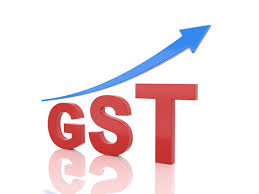Section 80JJAA of the Income-tax Act is a powerful incentive
Section 80JJAA of the Income-tax Act is a powerful incentive that rewards businesses for creating stable, formal jobs, especially in the manufacturing sector, by giving them an extra deduction over and above the normal salary expense. From the ethos explained in Sangeet Gupta’s video, the spirit is simple: if you genuinely add new workers on your rolls, pay them properly, and keep them for a reasonable period, the law shares your burden by giving you a bonus deduction.
https://www.youtube.com/watch?v=iaplCI_L9Pk&t=111s

Core idea and spirit
Section 80JJAA allows an eligible business to claim an additional deduction of 30% of the “additional employee cost” (essentially wages of new qualifying employees) for three consecutive years, starting from the year in which the employment is created. In ethos terms, the section is not about clever tax planning; it is a policy tool to push industry owners to move from informal, temporary, or cash-based labour to formal employment with PF, records, and continuity.
The focus is on real job creation, not paper reshuffling of staff or shifting people from one group company to another merely to claim the deduction. The law therefore builds in several conditions to ensure that only genuine, incremental employment gets rewarded, which is very much the emphasis in the this video explanation as well.
Who can claim and for which business
The deduction is available where the assessee’s business is subject to tax audit under section 44AB, i.e., typically larger or more organised businesses whose gross receipts cross the audit thresholds. The benefit is designed primarily for businesses engaged in manufacture or production, and current guidance clearly excludes routine service-sector outfits from claiming 80JJAA.
The business should not be formed by splitting up or reconstruction of an existing business, and it should not be simply acquired from someone else, because that does not create new jobs in the economy; it merely changes the owner. In the ethos shared in the Sangeet Gupta content, this is repeatedly underlined: 80JJAA is for entrepreneurs who are actually expanding capacity, putting in more machines, and taking more workers on their own rolls, not for cosmetic restructuring
Conditions for employees to qualify
For a worker to be counted as an “additional employee”, several conditions must be met to reflect seriousness and continuity of employment. The employee must be employed in the previous year for at least 240 days, with a relaxed threshold of 150 days for specified labour-intensive sectors such as footwear, apparel, and leather.
The monthly emoluments of the employee should be less than ₹25,000, so that the benefit focuses on blue-collar and lower-income staff, not senior management or highly paid specialists. The employee must be participating in a recognised provident fund, and the salaries must be paid through proper banking channels, which again pushes employers away from cash wages and unrecorded headcount.
Certain categories are explicitly excluded: casual workers, contract labour supplied by contractors, and employees for whom the entire EPF contribution is borne by the government. In practice, as often stressed in professional explanations, this means that if the factory has a large portion of contract labour, shifting them onto the company’s own payroll and meeting PF conditions can unlock sizable 80JJAA benefits, while still aligning with the pro-worker intent of the law.
Quantum of deduction and its impact
Once the business and the employees satisfy all criteria, the business can claim a deduction of 30% of the additional employee cost for three consecutive assessment years. When combined with the regular deduction of 100% of salary as a normal business expense, this can effectively give a total tax-deductible impact of up to about 190% over the three-year period for those wages.
The ethos here is that the government is not merely reimbursing cost; it is giving a “bonus” for job creation that continues for three years, matching the idea of sustained employment rather than short-term hiring spurts. For promoters and CFOs who think in terms of ROI, the message in Sangeet Gupta’s style is that once you run the numbers, 80JJAA can meaningfully reduce the effective cost of each new worker if you plan your headcount and compliance correctly.
Compliance, documentation and mindset
To actually enjoy this benefit, the law requires disciplined compliance: the return must be filed within the due date, and the claim must be supported by a report from an accountant in Form 10DA. Proper payroll records, PF challans, and employee-wise details must be maintained, because any weakness here can lead to denial of deduction on scrutiny.
From an ethos perspective, this pushes businesses to upgrade their systems: better HR records, cleaner salary structures, consistent banking payments, and ERP-backed payroll become not just “good practices” but gateways to tangible tax savings. This is very much in tune with the Finsys narrative that robust ERP and process discipline convert legal provisions like 80JJAA from theoretical benefits into real cash-flow savings on tax.
Strategic and ethical implications
Section 80JJAA embodies a partnership between the State and the entrepreneur where both sides share the load of creating formal employment. If the employer is willing to step out of the comfort zone of casual and contractual manpower and is ready to take responsibility for PF, compliance, and long-term engagement, the tax system responds with a continuous, formula-based reward.
From the ethos reflected in the Sangeet Gupta content, the moral is that 80JJAA should not be treated as a loophole but as a nudge:
-
To regularise long-serving workers.
-
To build loyalty and stability in the workforce.
-
To use technology (like ERP and structured payroll) so that what is good for workers and compliant with law also becomes financially attractive for the enterprise.
When explained in simple words, 80JJAA is a classic “win–win”: workers get proper jobs and social security, the government moves more people into the formal economy, and the employer gets an additional tax deduction that can be substantial over three years if planned thoughtfully.

- https://tax2win.in/guide/section-80-jjaa
- https://paytm.com/blog/income-tax/section-80jjaa-income-tax-deduction-new-employment-generation/
- https://www.youtube.com/watch?v=iaplCI_L9Pk
- https://incometaxindia.gov.in/Acts/Finance%20Acts/2016/102120000000058877.htm
- https://finsys.co.in/wp-content/uploads/2019/03/Income-Tax-Section-80JJAA-Problems-and-possible-Solutions-ver-4-Aug-2018.pdf
- https://www.jiraaf.com/blogs/taxation/what-is-section-80jjaa
- https://www.tataaig.com/health-insurance/section-80jjaa-of-income-tax-act
- https://taxguru.in/income-tax/section-80jjaa-deduction-respect-employees-recruited.html
- https://cleartax.in/s/section-80jja-income-tax-act
- https://incometaxindia.gov.in/_layouts/15/dit/pages/viewer.aspx?grp=act&cname=cmsid&cval=102120000000064488&searchfilter=
- https://incometaxindia.gov.in/Acts/Finance%20Acts/1998/102120000000009210.htm
- https://finsys.in/news
- https://incometaxindia.gov.in/communications/circular/circular-no-03-2025.pdf
- https://www.youtube.com/c/sangeetguptafinsyserpsoftware/videos
- https://mlgassociates.in/wp-admin/post.php?post=2758&action=edit
- https://www.bajajfinserv.in/investments/section-80jjaa-of-income-tax-act
- https://www.youtube.com/watch?v=uC1MgF9Dibo
- https://www.bajajfinserv.in/investments/section-80jja-of-income-tax-act
- https://www.taxmann.com/research/income-tax/top-story/105010000000024065/deductions-under-section-80jjaa-of-the-income-tax-act-1961-experts-opinion
- https://www.youtube.com/playlist?list=PLmbWfGYzaUnewo4ygM4xvkR9MZbWbDX5r
- https://www.linkedin.com/pulse/section-80jjaa-detailed-understanding-examples-case-study-anil-diwan-kswdc









 and when to make “Commercial Credit Note”
and when to make “Commercial Credit Note”













 Here the MLG BPO alone, serves accounting needs of about 12 midsize
Here the MLG BPO alone, serves accounting needs of about 12 midsize 
 And we at MLG Team handle their every Accounting Dept work, from Data entry, to Bank Reconciliation, to GST returns, to TDS payments, to Balance Sheet Finalisation, to submission of all details to the External Auditors and replying to Letters and Notices from Tax Authorities, when required.
And we at MLG Team handle their every Accounting Dept work, from Data entry, to Bank Reconciliation, to GST returns, to TDS payments, to Balance Sheet Finalisation, to submission of all details to the External Auditors and replying to Letters and Notices from Tax Authorities, when required. Our Firm is based in Faridabad, NCR-New Delhi. We serve our patrons with consultancy in matters relating to Income Tax, Statutory Audit, Internal Audit, Company Law Matters, FEMA advice, RBI Matters, GST Matters, Corporate Accounting BPO, and the like.
Our Firm is based in Faridabad, NCR-New Delhi. We serve our patrons with consultancy in matters relating to Income Tax, Statutory Audit, Internal Audit, Company Law Matters, FEMA advice, RBI Matters, GST Matters, Corporate Accounting BPO, and the like.


 MLG Associates, Chartered Accountants provide services like
MLG Associates, Chartered Accountants provide services like CA Firm in Faridabad, Internal Audits, GST consultant, Accounting outsourcing, Statutory Audits, CA Articleship, Chartered Accountant.
CA Firm in Faridabad, Internal Audits, GST consultant, Accounting outsourcing, Statutory Audits, CA Articleship, Chartered Accountant.